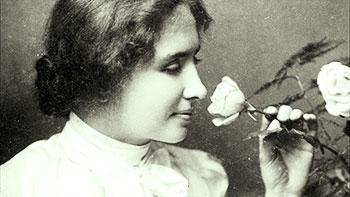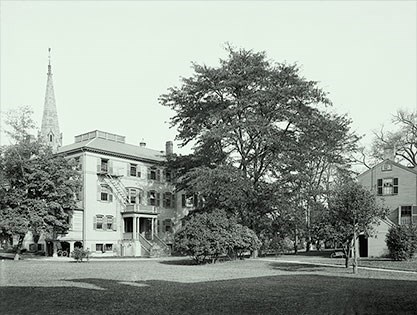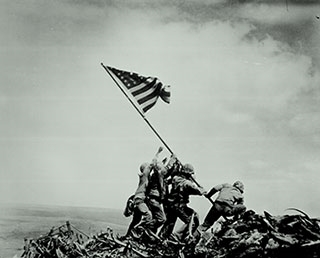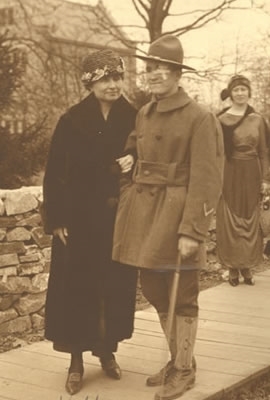 |
| (www.youtube.com (Smithsonian Channel)) |
 |
| Radcliffe College (Wikipedia (Library of Congress)) |
 |
| World War II; Keller lived around this time. (www.pindex.com (Visual Science)) |
 |
| Keller walking with a wounded soldier. (http://www.afb.org/ ()) |
Works Consulted
Bindley, Barbara. "Helen Keller - Why I Became an IWW." Industrial Workers of the World.
New York Tribune, 15 Jan. 1916. Web. 16 May 2016.
<http://www.iww.org/history/library/HKeller/why_I_became_an_IWW>.
"Helen Adams Keller." Encyclopedia of World Biography. Detroit: Gale, 1998. Biography in
Context. Web. 28 Apr. 2016.
Keller, Helen Adams. The Story of My Life. New York: New American Library, 1988. Print.
Stuckey, Kenneth A. "Keller, Helen." World Book Student. World Book, 2016. Web. 17
May 2016. <http://www.worldbookonline.com/student/article?id=ar296720>.
Rosenthal, Keith. "The Politics of Helen Keller." Issue #100. International Socialist Review, July
2011. Web. 14 May 2016. <http://isreview.org/issue/96/politics-helen-keller>.
Shichtman, Sandra H. "Helen Keller: Out Of A Dark & Silent World." Helen Keller: Out Of
Dark & Silent World (2002): 6-10. History Reference Center. Web. 17 May 2016.
Whitman, Alden. "Triumph out of Tragedy." On This Day. The New York Times, 2010. Web. 29
Apr. 2016. <http://www.nytimes.com/learning/general/onthisday/bday/0627.html>.
Works Cited
Bindley, Barbara. "Helen Keller - Why I Became an IWW." Industrial Workers of the World.
New York Tribune, 15 Jan. 1916. Web. 16 May 2016.
<http://www.iww.org/history/library/HKeller/why_I_became_an_IWW>.
"Helen Adams Keller." Encyclopedia of World Biography. Detroit: Gale, 1998. Biography in
Context. Web. 28 Apr. 2016.
Rosenthal, Keith. "The Politics of Helen Keller." Issue #100. International Socialist Review, July
2011. Web. 14 May 2016. <http://isreview.org/issue/96/politics-helen-keller>.
Shichtman, Sandra H. "Helen Keller: Out Of A Dark & Silent World." Helen Keller: Out Of
Dark & Silent World (2002): 6-10. History Reference Center. Web. 17 May 2016.
Whitman, Alden. "Triumph out of Tragedy." On This Day. The New York Times, 2010. Web. 29
Apr. 2016. <http://www.nytimes.com/learning/general/onthisday/bday/0627.html>.
Page created on 7/22/2016 12:00:00 AM
Last edited 7/22/2016 12:00:00 AM
